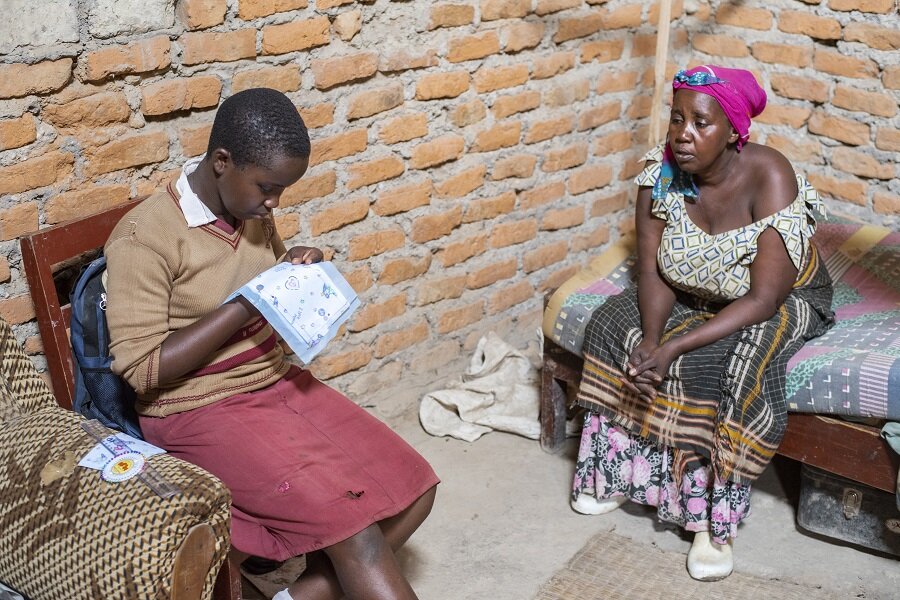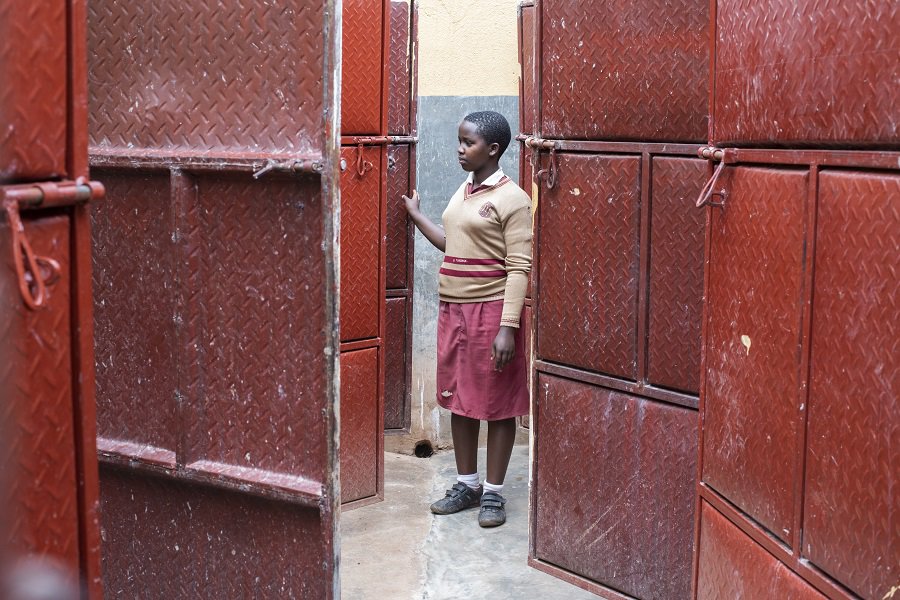This website uses cookies so that we can provide you with the best user experience possible. Cookie information is stored in your browser and performs functions such as recognizing you when you return to our website and helping our team to understand which sections of the website you find most interesting and useful.
In Uganda, 50 percent of girls between the ages of 15 to 24 are illiterate, and 4 in 5 girls do not attend high school. A variety of reasons prevent girls from being educated. Among them are danger and harassment walking long distances to and from school, early pregnancy and marriage, lack of money for school fees and supplies, devaluation of girls’ education, and lack of sanitation facilities.
Due to the lack of sanitary washrooms at school and money to buy pads, Joy, 16, and many of her peers stayed home from school. This caused them to fall behind and even led some to dropout, increasing their vulnerability to HIV infection.
In 2017, Brick by Brick Uganda, a DREAMS Innovation Challenge grantee funded by PEPFAR, launched a project to keep girls in secondary school. The project teaches girls to make reusable menstrual pads (RUMPs), renovates or builds clean and private washrooms to support menstrual hygiene at school, and trains teachers and students in sexual and reproductive health, including HIV prevention.
Joy was selected by the girls at her school to become a peer educator. Brick by Brick training taught Joy counseling skills, how to train others to make RUMPs, and how to talk to her peers about sensitive issues such as HIV and gender-based violence. Joy says, “They selected me because I am easy-going and they are comfortable talking with me about their problems.”
Now that menstruation is no longer a barrier to Joy’s education, she can concentrate on her dream of becoming a lawyer. As Joy notes, “Ladies’ are under men’s foot. I want to help them come out and speak about their problems.”
Brick by Brick has made life easier for the other girls, too. Olivia, a teacher at Joy’s school says, “Before, the adolescent girls were scared. They even stayed home during their period. Now that they can manage their menstruation at school, absenteeism has dropped.” Olivia also observes changes in boy students. “Before, the adolescent boys used to laugh about it, but now they even help them make RUMPs. They look at them as their sisters.”
Photo credit: Lambert Coleman / Hans Lucas



